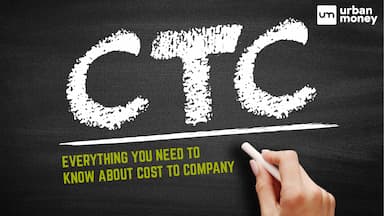- Home
- Personal Loan
- Personal Loan for Rs.20,000 Salary
Personal Loan for Rs.20,000 Salary
Personal loans for Rs.20,000 salary are designed to meet the financial needs of lower-income earners. These loans are typically unsecured, require no collateral, and offer flexibility regarding loan amount and repayment. The eligibility criteria for such loans often include a stable job, a minimum work experience, and a good credit history. While applying for a loan, borrowers must compare different lenders to find the best rates and terms that suit their financial situation and repayment capability. Here’s all the important information you need to know about getting a personal loan with a 20k salary.
- Personalized Personal Loan solutions
- Expert guidance
- Application assistance
- Credit score discussion
- Personal Loan Interest rate comparison
Table of Content


Last Updated: 8 February 2026
Rs. 20,000 Salary Personal Loan Options
An individual can explore the Rs. 20,000 salary personal loan options.
- Microfinance Institutions (MFIs): These organisations are geared towards helping lower-income groups. They offer small loans with relatively simple eligibility criteria, and the application process is usually straightforward.
- Non-Banking Financial Companies (NBFCs): NBFCs are more flexible than traditional banks in their lending criteria and may have higher approval rates for individuals with lower incomes.
- Government Schemes: Several government-initiated financial inclusion schemes provide affordable credit to economically weaker sections. Schemes like Pradhan Mantri Mudra Yojana (PMMY) can be good options for obtaining small—to medium-sized loans.
- Credit Unions and Cooperative Banks: These institutions often offer personal loans with more favourable terms for their members, including those with lower incomes.
- Peer-to-Peer (P2P) Lending Platforms: These online platforms connect borrowers with individual lenders and can offer personal loans at varied interest rates, often without stringent income requirements.
- Advance Salary Loans: Some fintech companies offer loans against your salary. These are short-term loans that you can repay once your salary is credited.
Personal Loan for Rs.20,000 Salary – Features and Benefits
Following are the features and benefits of Rs.20,000 salary personal loan.
- Flexibility: Personal loans can be used for various purposes, from debt consolidation to holiday funding.
- No Collateral Required: They are typically unsecured, meaning you don’t need to pledge any asset as security.
- Fixed Interest Rates: The interest rates are usually fixed, which means consistent monthly payments.
- Quick Disbursement: After approval, funds are usually disbursed quickly, which is helpful in urgent financial needs.
- Various Loan Amounts: Loan amounts can vary widely, accommodating different financial needs and repayment capacities.
- Repayment Tenure Options: There are multiple tenure options, allowing borrowers to align repayment with their financial circumstances.
Rs.20,000 Salary Personal Loan Eligibility & Document
Following is the personal loan eligibility criteria for Rs.20,000 personal loan eligibility criteria and document.
- Age: Generally, applicants must be between 21 and 60 years.
- Employment: Steady income from employment or self-employment is required.
- Credit Score: A good credit score (usually above 650) enhances eligibility.
- Employment Stability: Consistent employment history is looked upon favourably.
The documents generally needed for a personal loan application are:
- Identification Proof: ID card, passport, or driver’s license.
- Address Proof: Recent utility bills or a passport.
- Income Proof: Recent payslips, bank statements, or tax returns.
- Employment Verification: Employment certificate or similar documentation.
Interest Rates for Personal Loan on Rs.20,000 Salary
The interest rates for a loan based on a Rs 20,000 salary can differ based on elements like the lender, credit rating, and the loan duration. Personal loan interest rates on this income typically fluctuate anywhere between 10% and 24%. Here is a quick rundown of the same.
| HDFC Bank | 10.5% p.a. – 24.00% p.a. |
| ICICI Bank | 10.50% p.a. – 16.00% p.a. |
| TurboLoan Powered by Chola | 14% p.a. |
| Yes Bank | 10.99% p.a. onwards – 20% p.a. |
| Kotak Mahindra Bank | 10.99% and above |
| Axis Bank | 10.49% p.a.- 22% p.a. |
| IndusInd Bank | 10.25% p.a. – 26% p.a. |
| HSBC Bank | 9.99% p.a. – 16.00% p.a. |
| IDFC First Bank | 10.49% p.a. onwards |
| Tata Capital | 10.99% onwards |
| Home Credit Cash Loan | 24% p.a. – 34% p.a. |
| Ujjivan Small Finance Bank | At the discretion of the bank |
| Aditya Birla Capital | 14% p.a. -26% p.a. |
| State Bank of India | 11.05% p.a. – 14.05% p.a. |
| Indian Overseas Bank | 12.5% p.a. – 13.5% p.a. |
| RBL Bank | 14% p.a. – 23% p.a. |
| Punjab National Bank | 11.40% p.a. onwards |
| Bank of Maharashtra | 10.00% p.a. onwards |
| Central Bank of India | 12.00% p.a. – 12.75% p.a. |
| City Union Bank | At the discretion of the bank |
| J&K Bank | 12.40% p.a. – 13.40% p.a. |
Personal Loan on Rs.20,000 Salary: How Much Can You Expect?
The amount of a personal loan on a salary of Rs 20,000 or less varies depending on several factors such as your credit score, existing debts, the lender’s policies, and your overall financial profile, including your monthly expenses.
Typically, lenders use a multiplier method based on your net monthly income to determine the maximum loan amount. Generally, you can expect to receive anywhere from 3 to 6 times your monthly net income as a loan. For a Rs 20,000 salary, this could mean a loan amount ranging from Rs 60,000 to Rs 1,20,000. However, checking the same with different lenders is important before applying for a personal loan.
How to Apply for a Personal Loan for Rs.20,000 Salary?
Here’s how you can apply for a personal loan for Rs.20,000 salary.
- Gather essential documents such as identification, address, income, and employment proof.
- Access the lender’s website or app, fill out the application form, and upload the necessary documents.
- Carefully check all details before submitting your application.
- The lender will verify your information and the documents submitted.
- The lender will inform you of the loan terms and present an offer.
- Evaluate the loan offer and agree to it if you are happy with the terms.
- Upon agreement, the loan amount will be transferred to your bank account.
FAQs
Q1) Can I get a personal loan with a salary of Rs.20,000?
Yes, you can get a personal loan with a salary of Rs. 20,000, but the amount you can borrow may be limited, and the terms might be less favourable compared to those with higher incomes. Lenders typically look for a minimum monthly income to assess your loan repayment capacity. With a Rs. 20,000 salary, you might be eligible for smaller loan amounts, and you may need to provide additional documentation to prove your ability to repay.
Q2) How Does Rs.20,000 Salary Affect Loan Terms?
Rs. 20,000 salary can affect loan terms in several ways:
- Loan Amount: Your maximum eligible loan amount will likely be lower because lenders calculate the loan based on multiples of your monthly income.
- Interest Rates: You may be offered higher interest rates as lenders might perceive a higher risk in lending to individuals with lower incomes.
- Repayment Terms: The repayment tenure might be shorter, which can lead to higher monthly payments.
- Eligibility Requirements: You may need a co-applicant or guarantor to improve your loan approval chances or to get better loan terms.
Q3) What Happens in Case of Job Loss During Loan Repayment?
Losing your job during loan repayment can be challenging. Here’s what could happen and some steps you can take:
- Communication with Lender: It’s crucial to inform your lender about your job loss and discuss possible adjustments to your repayment plan.
- Repayment Relief: Some lenders offer a grace period or temporary relief in payments, allowing you time to find new employment.
- Insurance Covers: Some loan agreements include insurance that covers repayments in case of involuntary job loss. Check if your agreement includes such a clause.
- Impact on Credit Score: Failure to make timely payments can negatively affect your credit score, so it’s important to handle the situation carefully.
Q4) Are There Government Schemes for Individuals with Rs. 20,000 Salary?
Yes, there are government schemes aimed at supporting individuals with lower incomes:
- Pradhan Mantri Awas Yojana (PMAY): This scheme aims to provide affordable housing to the urban and rural poor, which includes interest subsidies on home loans.
- Pradhan Mantri MUDRA Yojana (PMMY): This scheme provides loans to small/micro business units to enhance economic activities and self-employment for individuals including those with lower incomes.
- Atal Pension Yojana (APY): Designed for workers in the unorganised sector, offering a fixed pension depending on contributions.
Quick Links
Personal Loan by Nationalized Bank
Personal Loan by Private Bank
- RBL Bank Personal Loan
- Unity Small Finance Bank Personal Loan
- DCB Bank Personal Loan
- Reliance Capital Personal Loan
- Federal Bank Personal Loan
- karnataka bank Personal Loan
- IDBI Bank Personal Loan
- Kotak Bank Personal Loan
- HDFC Bank Personal Loan
- YES Bank Personal Loan
- CITI Bank Personal Loan
- HDFC Sales Personal Loan
- IndusInd Bank Personal Loan
- ICICI Bank Personal Loan
- IDFC FIRST Bank Personal Loan
- HSBC Personal Loan
- Axis Bank Personal Loan
- karur Vysya Bank Personal Loan
Personal Loan by NBFC
- Bhanix Finance Personal Loan
- Prefr Personal Loan
- Tata Capital Financial Services LTD Personal Loan
- Aditya Birla Finance Limited Personal Loan
- Ujjivan Small Finance Bank Personal Loan
- Hero FinCorp Personal Loan
- Capital First Ltd. Personal Loan
- Zype Personal Loan
- FatakPay Personal Loan
- Clix Capital Personal Loan
- PaySense Personal Loan
- DHFL Personal Loan
- MoneyWide Personal Loan
- AU Small Finance Bank Personal Loan
- FT Cash Personal Loan
- Edelweiss Financial Services Personal Loan
- Muthoot Finance Ltd Personal Loan
- InCred Financial Services Personal Loan
- SMFG India Credit Company Ltd Personal Loan
- IndiaBulls Personal Loan
- IIFL Finance Personal Loan
- Shriram Urban Co Operative Bank Limited Personal Loan
- Piramal Finance Personal Loan
- EpiFi Personal Loan
- L&T Finance Personal Loan
- Tata Capital Housing Finance Limited Personal Loan
- Bajaj Finserv Personal Loan
- Poonawalla Fincorp Limited Personal Loan
- Privo Personal Loan
- Loantap Credit Products Private Limited Personal Loan
Personal Loan Calculators
Bank wise Personal Loan Calculators
- Axis Bank Personal Loan Calculator
- Canara Bank Personal Loan Calculator
- Idfc First Bank Personal Loan Calculator
- Hsbc Personal Loan Calculator
- Indusind Bank Personal Loan Calculator
- Hdfc Bank Personal Loan Calculator
- Kotak Bank Personal Loan Calculator
- State Bank Of India Personal Loan Calculator
- Idbi Bank Personal Loan Calculator
- Indiabulls Personal Loan Calculator
- Muthoot Finance Ltd Personal Loan Calculator
- Paysense Personal Loan Calculator
- Bajaj Finserv Personal Loan Calculator
- Tata Capital Financial Services Ltd Personal Loan Calculator
- Hero Fincorp Personal Loan Calculator
- Karur Vysya Bank Personal Loan Calculator
- Union Bank Of India Personal Loan Calculator
- Punjab National Bank Personal Loan Calculator
- Bank Of India Personal Loan Calculator
- Bank Of Baroda Personal Loan Calculator
- Punjab Sind Bank Personal Loan Calculator
- Indian Bank Personal Loan Calculator
- Bank Of Maharashtra Personal Loan Calculator
- Citi Bank Personal Loan Calculator
- Rbl Bank Personal Loan Calculator
- Karnataka Bank Personal Loan Calculator
- Federal Bank Personal Loan Calculator
- Deutsche Bank Personal Loan Calculator
- Yes Bank Personal Loan Calculator
- Dcb Bank Personal Loan Calculator
- Icici Bank Personal Loan Calculator
Bank Wise Personal Loan Interest Rate
- Bank of India Personal Loan Interest Rate
- Punjab National Bank Personal Loan Interest Rate
- Bank of Baroda Personal Loan Interest Rate
- State Bank of India Personal Loan Interest Rate
- Punjab & Sind Bank Personal Loan Interest Rate
- Indian bank Personal Loan Interest Rate
- Bank of Maharashtra Personal Loan Interest Rate
- Union Bank of India Personal Loan Interest Rate
- Canara Bank Personal Loan Interest Rate
- RBL Bank Personal Loan Interest Rate
- Unity Small Finance Bank Personal Loan Interest Rate
- DCB Bank Personal Loan Interest Rate
- Reliance Capital Personal Loan Interest Rate
- Federal Bank Personal Loan Interest Rate
- karnataka bank Personal Loan Interest Rate
- IDBI Bank Personal Loan Interest Rate
- Kotak Bank Personal Loan Interest Rate
- HDFC Bank Personal Loan Interest Rate
- YES Bank Personal Loan Interest Rate
- CITI Bank Personal Loan Interest Rate
- HDFC Sales Personal Loan Interest Rate
- IndusInd Bank Personal Loan Interest Rate
- ICICI Bank Personal Loan Interest Rate
- IDFC FIRST Bank Personal Loan Interest Rate
- HSBC Personal Loan Interest Rate
- Axis Bank Personal Loan Interest Rate
- karur Vysya Bank Personal Loan Interest Rate
- Bhanix Finance Personal Loan Interest Rate
- Prefr Personal Loan Interest Rate
- Tata Capital Financial Services LTD Personal Loan Interest Rate
- Aditya Birla Finance Limited Personal Loan Interest Rate
- Ujjivan Small Finance Bank Personal Loan Interest Rate
- Hero FinCorp Personal Loan Interest Rate
- Capital First Ltd. Personal Loan Interest Rate
- Zype Personal Loan Interest Rate
- FatakPay Personal Loan Interest Rate
- Clix Capital Personal Loan Interest Rate
- PaySense Personal Loan Interest Rate
- DHFL Personal Loan Interest Rate
- MoneyWide Personal Loan Interest Rate
- AU Small Finance Bank Personal Loan Interest Rate
- FT Cash Personal Loan Interest Rate
- Edelweiss Financial Services Personal Loan Interest Rate
- Muthoot Finance Ltd Personal Loan Interest Rate
- InCred Financial Services Personal Loan Interest Rate
- SMFG India Credit Company Ltd Personal Loan Interest Rate
- IndiaBulls Personal Loan Interest Rate
- IIFL Finance Personal Loan Interest Rate
- Shriram Urban Co Operative Bank Limited Personal Loan Interest Rate
- Piramal Finance Personal Loan Interest Rate
- EpiFi Personal Loan Interest Rate
- L&T Finance Personal Loan Interest Rate
- Tata Capital Housing Finance Limited Personal Loan Interest Rate
- Bajaj Finserv Personal Loan Interest Rate
- Poonawalla Fincorp Limited Personal Loan Interest Rate
- Privo Personal Loan Interest Rate
- Loantap Credit Products Private Limited Personal Loan Interest Rate
Latest from the Personal Loan Blog
Get in-depth knowledge about all things related to Personal Loan and your finances

Education Loan Eligibility in India: Criteria, Documents & Mistakes to Avoid
Education loan eligibility is important for students and parents who want to fund higher education without financial stress. With rising education costs, understanding the eligibility criteria for education loans can sig

Reasons For Personal Loan Rejection
Applying for a personal loan can be a tough and slow process. This is especially true when you really need money. A personal loan can help cover unexpected expenses, fund a big purchase, or consolidate debt. It offers gr

Cost to Company (CTC)
When considering a job offer, it’s easy to become fixated on the attractive “CTC” figure. But there’s more to this figure than strikes the eye. Realising the value of CTC requires going beyond its initial cost to determi

EMI: Meaning, How It Works, Calculation Method, Benefits & Drawbacks
EMIs have become one of the most common forms of payment for any financial obligation, from college fees to purchasing a new phone. This fixed monthly amount saves lakhs of citizens annually by preventing sudden financia

Top 10 Best Private Banks in India List 2025
Today, the banking system incorporates 21 private banks in India along with 12 public sector banks, foreign banks, rural banks, cooperative banks, and financial institutions. In total, the retail credit market of India r
